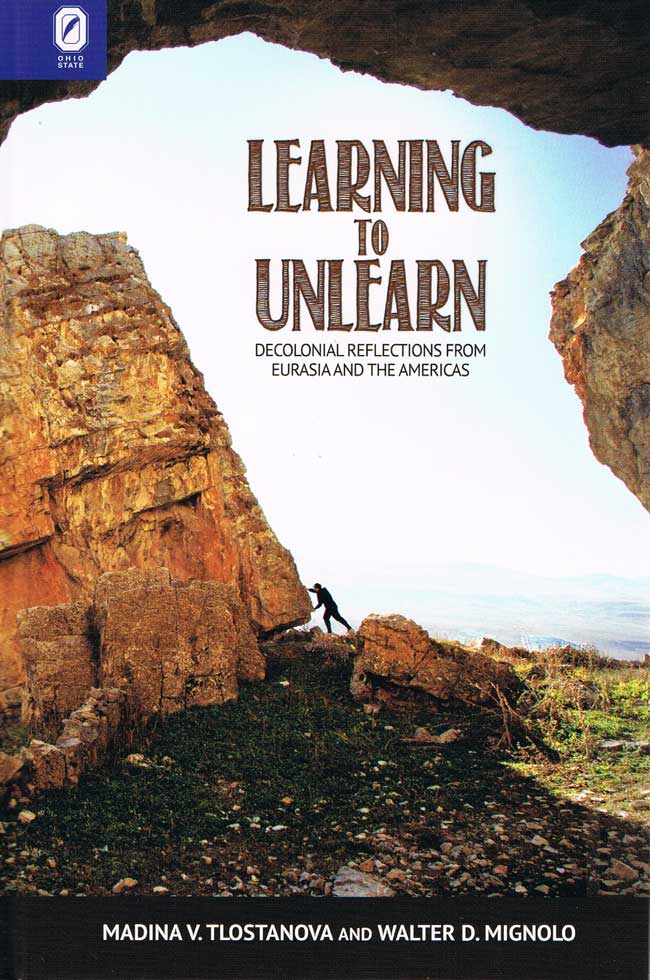Learning to UnlearnDecolonial Reflections from Eurasia and the AmericasMadina V. Tlostanova and Walter D. MignoloTransoceanic Studies |
 6/20/2012 Philosophy/Epistemology; Education/Philosophy & Social Aspects; Political Science/Globalization; Social Science/Ethnic Studies/General; Social Science/Human Geography 281 pp. 6x9  $34.95 paper 978-0-8142-5875-0 Add paper to shopping cart Shopping Cart Instructions Review/Change Shopping Cart & Check-out | |||
|
“This book—at this point in time, unique in its scope and the breadth of problematics it covers—will open up a much-needed debate on decolonization of knowledge, thinking, and being. Tlostanova and Mignolo’s joint writing style is flawless, didactic, engaging, and appropriate for the intended audience. Learning to Unlearn constitutes a perfect example of what The Ohio State University Press Transoceanic Series should seek to publish.” —Laura M. Martins, associate professor of comparative literature, Louisiana State University “Learning to Unlearn is a logical continuity of Walter Mignolo’s text Local Histories/Global Designs. In their scholarly writing partnership, Madina V. Tlostanova and Walter D. Mignolo put forward daring theories and concepts. The book makes a cogent and sound argument, working well as a coherent unit.” —Javier Sanjinés, professor of Spanish, The University of Michigan Learning to Unlearn: Decolonial Reflections from Eurasia and the Americas is a complex, multisided rethinking of the epistemic matrix of Western modernity and coloniality from the position of border epistemology. Colonial and imperial differences are the two key concepts to understanding how the logic of coloniality creates ontological and epistemic exteriorities. Being at once an enactment of decolonial thinking and an attempt to define its main grounds, mechanisms, and concepts, the book shifts the politics of knowledge from “studying the other” (culture, society, economy, politics) toward “the thinking other” (the authors). Addressing areas as diverse as the philosophy of higher education, gender, citizenship, human rights, and indigenous agency, and providing fascinating and little-known examples of decolonial thinking, education, and art, Madina V. Tlostanova and Walter D. Mignolo deconstruct the modern architecture of knowledge—its production and distribution as manifested in the corporate university. In addition, the authors dwell on and define the echoing global decolonial sensibilities as expressed in the Americas and in peripheral Eurasia. The book is an important addition to the emerging transoceanic inquiries that introduce decolonial thought and non-Western border epistemologies not only to update or transform disciplines but also to act and think decolonially in the global futures to come. Madina V. Tlostanova is professor in the Department of History of Philosophy at Peoples’ Friendship University of
Russia. Walter D. Mignolo is William H. Wannamaker Professor of Literature and Director of the Center for Global Studies
and the Humanities at Duke University. | ||||

